 Welcome back to the Logistics Viewpoints weekly news round-up. I certainly had a busy, but refreshing, break over the holidays. But somehow the beginning of the new year seems different this time around. I suppose that is because for the first time in a decade my beloved New England Patriots are not in the divisional round of the playoffs. Not only that, but Tom Brady is not under contract, meaning he could leave the team when free agency begins in March. As the clock ticked down on their defeat to the Titans, I could hear David Gilmour’s voice singing “where do we go from here?” over and over again in my head. And the answer to that question, for New England fans, is “I don’t know.” The Brady – Belichick duo has been a staple in my football life for twenty years. But now, that future is uncertain, and I am left wondering where do we go from here? My prediction is the Pats bring Brady back on a two-year deal, as they groom his heir to the football throne. But then again, who knows. Maybe he will sporting new colors next year, which would just look wrong on so many levels. And now on to this week’s logistics news:
Welcome back to the Logistics Viewpoints weekly news round-up. I certainly had a busy, but refreshing, break over the holidays. But somehow the beginning of the new year seems different this time around. I suppose that is because for the first time in a decade my beloved New England Patriots are not in the divisional round of the playoffs. Not only that, but Tom Brady is not under contract, meaning he could leave the team when free agency begins in March. As the clock ticked down on their defeat to the Titans, I could hear David Gilmour’s voice singing “where do we go from here?” over and over again in my head. And the answer to that question, for New England fans, is “I don’t know.” The Brady – Belichick duo has been a staple in my football life for twenty years. But now, that future is uncertain, and I am left wondering where do we go from here? My prediction is the Pats bring Brady back on a two-year deal, as they groom his heir to the football throne. But then again, who knows. Maybe he will sporting new colors next year, which would just look wrong on so many levels. And now on to this week’s logistics news:
- Walmart in the news
- IBM and Farmer Connect unveil blockchain app to reveal coffee’s source
- Little Caesars to deliver pizza nationwide for the first time
- Carrefour announces the close of its acquisition of Dejbox
- FedEx and UPS make changes to battle Amazon
- Another freight shipper accuses rails of price fixing
- Class 8 truck orders tumble to decade low
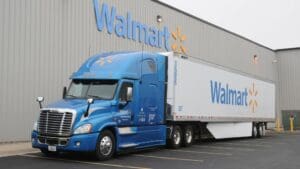 After hearing arguments last August, a federal appeals court has sided with truck drivers that had sued Walmart over what it called unpaid wages. According to the ruling, Walmart must abide by a $54.6 million jury award compensating a group of California-based drivers for 10-hour end-of-shift layovers, rest breaks, and inspections. The three-judge panel from the 9th US Circuit Court of Appeals found that the drivers were entitled to compensation under California law because Walmart had exercised control over their schedules during mandated layovers and other breaks. California state law requires that employees be paid a minimum wage covering the entire time they are under an employer’s control. This case covers drivers that worked for Walmart between 2004 and 2015. Walmart is reviewing the panel’s decision and has not made a decision on whether it would appeal the ruling.
After hearing arguments last August, a federal appeals court has sided with truck drivers that had sued Walmart over what it called unpaid wages. According to the ruling, Walmart must abide by a $54.6 million jury award compensating a group of California-based drivers for 10-hour end-of-shift layovers, rest breaks, and inspections. The three-judge panel from the 9th US Circuit Court of Appeals found that the drivers were entitled to compensation under California law because Walmart had exercised control over their schedules during mandated layovers and other breaks. California state law requires that employees be paid a minimum wage covering the entire time they are under an employer’s control. This case covers drivers that worked for Walmart between 2004 and 2015. Walmart is reviewing the panel’s decision and has not made a decision on whether it would appeal the ruling.
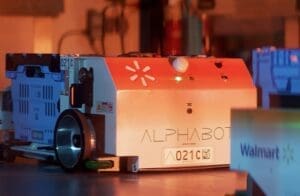 Walmart is continuing to advance its use of robots to increase efficiencies in the store. The retailer is working with Massachusetts-based Alert Innovation to deploy its Alphabot, which it calls a “first-of-a-kind” technology at a Salem, NH supercenter. The robot is a grocery-picking machine that Walmart thinks could revolutionize its online business. Alphabot automates steps of the online grocery pickup process by using autonomous mobile carts to gather shelf-stable, refrigerated, and frozen items from a high-density storage system. The carts retrieve the items and deliver them to a store associate for fulfillment. The process takes place in the back of the store, out of view of the customer. According to Brian Roth, a senior manager of pickup automation and digital operations for Walmart US, “by assembling and delivering orders to associates, Alphabot is streamlining the order process, allowing associates to do their jobs with greater speed and efficiency.”
Walmart is continuing to advance its use of robots to increase efficiencies in the store. The retailer is working with Massachusetts-based Alert Innovation to deploy its Alphabot, which it calls a “first-of-a-kind” technology at a Salem, NH supercenter. The robot is a grocery-picking machine that Walmart thinks could revolutionize its online business. Alphabot automates steps of the online grocery pickup process by using autonomous mobile carts to gather shelf-stable, refrigerated, and frozen items from a high-density storage system. The carts retrieve the items and deliver them to a store associate for fulfillment. The process takes place in the back of the store, out of view of the customer. According to Brian Roth, a senior manager of pickup automation and digital operations for Walmart US, “by assembling and delivering orders to associates, Alphabot is streamlining the order process, allowing associates to do their jobs with greater speed and efficiency.”
 At the 2020 Consumer Electronics Show, IBM and Farmer Connect unveiled a new mobile application dubbed “Thank My Farmer” to increase coffee traceability. The blockchain-based mobile app will allow consumers to trace the origin and quality of their coffee while supporting the farmers that are growing it. The app will also enable consumers to understand just how sustainable their coffee is, and what the company is doing to improve its sustainability efforts. The app was developed in conjunction with representative from Beyers Koffie, the Columbian Coffee Growers Federation, ITOCHU Corporation, Jacobs Douwe Egberts, the JM Smucker Company, Rabobank, RGC Coffee, Volcafe, Sucafina, and Yara International.
At the 2020 Consumer Electronics Show, IBM and Farmer Connect unveiled a new mobile application dubbed “Thank My Farmer” to increase coffee traceability. The blockchain-based mobile app will allow consumers to trace the origin and quality of their coffee while supporting the farmers that are growing it. The app will also enable consumers to understand just how sustainable their coffee is, and what the company is doing to improve its sustainability efforts. The app was developed in conjunction with representative from Beyers Koffie, the Columbian Coffee Growers Federation, ITOCHU Corporation, Jacobs Douwe Egberts, the JM Smucker Company, Rabobank, RGC Coffee, Volcafe, Sucafina, and Yara International.
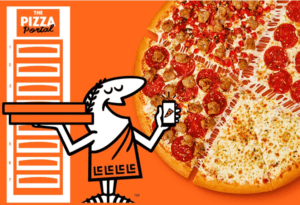 For the first time in the company’s 60-year history, Little Caesars will deliver pizza nationwide. The company has decided to venture into the delivery realm through a partnership with crowd-sourced delivery platform DoorDash. Little Caesars is known for its inexpensive pizza, especially compared with some other national chains. For example, a large cheese pizza costs $7.99, compared to $13.99 and $14.99 at two other well established pizza chains. Little Caesars announced that there is no minimum order for delivery, and that delivery fees will top out at $5.99. To place a delivery order, customers can use the Little Caesars website or mobile app, pre-pay, and choose the delivery option.
For the first time in the company’s 60-year history, Little Caesars will deliver pizza nationwide. The company has decided to venture into the delivery realm through a partnership with crowd-sourced delivery platform DoorDash. Little Caesars is known for its inexpensive pizza, especially compared with some other national chains. For example, a large cheese pizza costs $7.99, compared to $13.99 and $14.99 at two other well established pizza chains. Little Caesars announced that there is no minimum order for delivery, and that delivery fees will top out at $5.99. To place a delivery order, customers can use the Little Caesars website or mobile app, pre-pay, and choose the delivery option.
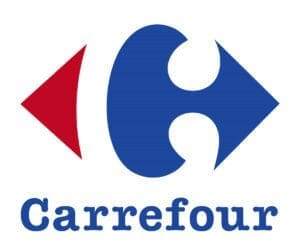 Food delivery is becoming big business for many retail supercenters. Carrefour, the French hypermarket operator, has doubled down its efforts with the acquisition of Dejbox, a start-up focused on lunch delivery for office workers. The acquisition is intended to complement Carrefour’s e-commerce ready meal business and open up new opportunities for the B2B market. Dejbox currently operates in a number of French cities, including Paris, Lyon, Nantes, Lille, Bordeaux, and Grenoble. In its announcement, Carrefour highlighted the startup’s employment model, which, according to the firm sets Dejbox apart from its competitors, many of which rely on “gig economy” or self-employed workers.
Food delivery is becoming big business for many retail supercenters. Carrefour, the French hypermarket operator, has doubled down its efforts with the acquisition of Dejbox, a start-up focused on lunch delivery for office workers. The acquisition is intended to complement Carrefour’s e-commerce ready meal business and open up new opportunities for the B2B market. Dejbox currently operates in a number of French cities, including Paris, Lyon, Nantes, Lille, Bordeaux, and Grenoble. In its announcement, Carrefour highlighted the startup’s employment model, which, according to the firm sets Dejbox apart from its competitors, many of which rely on “gig economy” or self-employed workers.
As the Amazon effect continues to change the industry, leading carriers are making changes to their business models to compete. Both UPS and FedEx are raising prices and imposing new restrictions for e-commerce orders as Amazon takes more control of the e-commerce market, and its own shipping needs. Both companies have implemented a new $24 fee for packages that exceed 50 pounds. This is a two-fold change for the companies. First, it has lowered the weight threshold from 70 pounds. And second, it has raised the price for overweight items. This will be a story to keep an eye on over the course of the next few months and years.
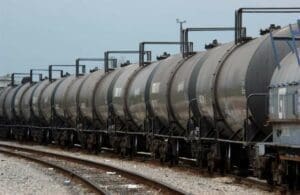 Another week, another price fixing accusation. This week, the petrochemical and refining unit of the French energy major Total accused the nation’s four biggest railroads of price fixing by adding fuel surcharges to cargo prices. The company has joined a list of 37 other companies suing the railroads that control 90 percent of the nation’s rail freight traffic for allegedly conspiring to impose fuel surcharges from as early as 2003. The companies allege that Burlington Northern Santa Fe Railway of Fort Worth, CSX Transportation of Florida, Norfolk Southern Railway of Virginia and Union Pacific Railroad of Nebraska violated federal anti-trust laws by coordinating the fuel surcharges through meetings, phone calls, and emails. According to Total, these fuel surcharges have generated billions of dollars of revenue for the railroads.
Another week, another price fixing accusation. This week, the petrochemical and refining unit of the French energy major Total accused the nation’s four biggest railroads of price fixing by adding fuel surcharges to cargo prices. The company has joined a list of 37 other companies suing the railroads that control 90 percent of the nation’s rail freight traffic for allegedly conspiring to impose fuel surcharges from as early as 2003. The companies allege that Burlington Northern Santa Fe Railway of Fort Worth, CSX Transportation of Florida, Norfolk Southern Railway of Virginia and Union Pacific Railroad of Nebraska violated federal anti-trust laws by coordinating the fuel surcharges through meetings, phone calls, and emails. According to Total, these fuel surcharges have generated billions of dollars of revenue for the railroads.
A combination of a softening economy and a rush for bookings in 2018 has resulted in orders of new Class 8 trucks to tumble to their lowest annual level in a decade in 2019. Truck makers saw the slowdown eat away at a record industry backlog of a year ago and cut production that resulted in thousands of job losses. Even though year-over-year truck orders fell once again in December, the 20,000 bookings were actually an increase of 14 percent over November, according to ACT Research. Retail sales, which follow orders and production, are expected to set a record of 310,000 to 340,000 when those numbers are tallied later in January. Most predictions call for about 100,000 fewer Class 8 sales in 2020.
That’s all for this week. Enjoy the weekend and the song of the week, Pink Floyd’s Keep Talking.

















